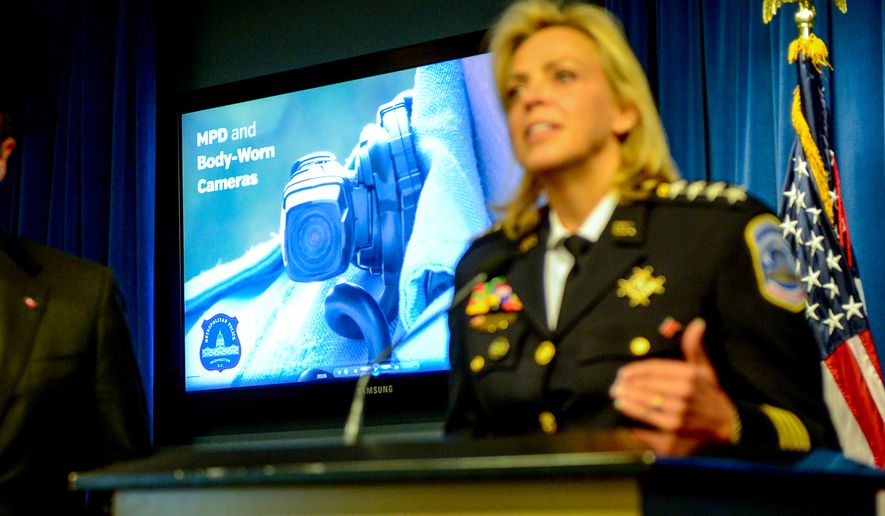Officers ambush a barbecue and shoot a dog while responding to a report of someone smoking marijuana. A 16-year-old boy is stopped and questioned about whether the bicycle he’s riding is stolen because it looks more expensive than his friends’ bikes. A group of 11-year-olds request training from the ACLU on how to interact with police because they are scared of having a bad encounter with officers.
Those are the stories D.C. residents told when asked to testify about stop-and-frisk interactions, traffic stops and militarization of the Metropolitan Police Department. Dozens of residents and activists Wednesday at Howard University told the D.C. Council’s Committee on the Judiciary and Public Safety about police practices they say have terrorized the city’s black population.
“I’ve had occasion in my work to interview hundreds of local residents who live in heavily policed communities, including children and adults. I always ask them ’How many times have you been stopped and frisked by MPD?’” testified Alec Karakatsanis, a former D.C. public defender who now runs Equal Justice Under Law, a nonprofit civil-rights organization. “Young black men often do not know how to answer that question. They often say, ’Do you mean, this week?’”
Kymone Freeman, an activist with We Act Radio, recalled getting into his car one night and seeing police officers run at him with guns drawn, pulling him from the vehicle. The steering column of his car was broken because it had been stolen and he had only recently recovered it. But Mr. Freeman said police assumed that he was the one stealing the car.
“No one stopped to ask me, ’Yo, your ID?’ so they could find out the car was actually registered to me and I’m the rightful owner,” Mr. Freeman said. “No, I was [dragged out of] the car kicking and screaming and one officer, when I was actually protesting, choked me.”
The wide-ranging hearing was held to explore residents’ everyday interactions with D.C. police officers, in the hope that lawmakers could identify problems and suggest legislative fixes.
“Every jurisdiction has an obligation to look in its own backyard. How are we doing? How has policing changed and has it changed without public scrutiny?” said D.C. Council member Tommy Wells, the Ward 6 Democrat who presided over the hearing. “The whole idea of militarization of police, which has happened right in front of our eyes, started with the War on Drugs and is something that has continued.”
Members of the NAACP, ACLU and other activist groups said they are unable to gauge the frequency of police interactions, such as stop-and-frisks, because the city police department doesn’t keep records of encounters with citizens that do not result in arrests or citations.
“We suspect that black people in the District are subjected to stops and encounters and searches at a rate that is far, far greater than any arrest number could indicate,” said Seema Sadanandan, of the ACLU’s Washington branch.
The majority of those who testified were black, but many noted they had experienced rough or inappropriate treatment at the hands of both black and white police officers.
Ms. Sadanandan suggested that the D.C. police department be required to document every single stop or search officers conduct that does not involve a warrant, including encounters involving “jump-out squads” or unmarked police units that quickly jump out of vehicles to apprehend people on the street.
Other suggestions included the installation of a citizen oversight board that would have the authority to punish officers. The city already has an independent Office of Police Complaints, but Police Chief Cathy L. Lanier has the final authority in deciding whether to implement punishment recommended by the agency.
Police officials did not testify at Wednesday’s hearing, but are expected to do so Oct. 27 at a second hearing. This month, the police department unveiled a pilot program on the use of on-body cameras for officers. Chief Lanier has said use of the technology could keep both officers and citizens on good behavior, thereby reducing the number of complaints.
• Andrea Noble can be reached at anoble@washingtontimes.com.




Please read our comment policy before commenting.